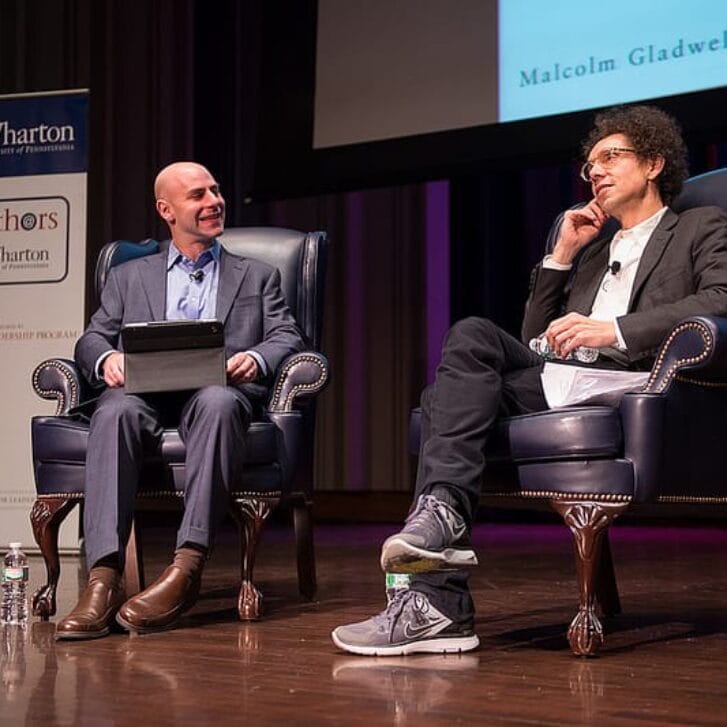At the semester’s last Authors@Wharton Speaker Series event featuring ‟Tiger Mom” Amy Chua and Jed Rubenfeld, the husband-and-wife duo discussed their new book, The Triple Package: How Three Unlikely Traits Explain the Rise and Fall of Cultural Groups. The book discusses the commonalities of America’s overachievers—and seeks to figure out why particular ethnic and religious groups are succeeding at a time when so many people are struggling.
The book, however, is not about racially driven stereotypes. Chua and Rubenfeld studied Americans of Indian, Persian, Lebanese, Chinese, Nigerian, Cuban and Jewish descent and covered three qualities of highly successful groups in America—the so-called Triple Package. 
1. Superiority Complex
There is a deep-seated, almost self-serving sense of exceptionality amongst all of these groups—a feeling that they are destined for greatness often a consequence of a deep sense of ethnocentric or familial pride.
2. Insecurity
Feelings of insufficiency and insecurity are also evident among members of these groups. Though insecurity seems a strange quality to have in combination with a raging superiority complex, the two qualities work in tandem to produce an above-average drive for high achievement.
Members of these groups feel insecure vis-à-vis their position in society, as well as their place in their own family. Many East Asian immigrants reported feeling like one of their parent’s investment. When they don’t achieve, they felt guilty for not giving their parents a good return.
The stereotype among many Asian parents that achieving 99 percent is still not 100 percent (and that they should do better) has a meaningful implication. Chua said that there was “an ocean of difference between the message that typical American parents instill in their children and the message that Triple Package parents instill in their children.” The message of many American parents—the authors argued—was that a child should be constantly praised regardless of their achievements.
3. Impulse Control
Resisting temptation and being self-disciplined are also characteristics of individuals belonging to successful ethnic groups. Views on childhood vary widely between American parents who see childhood as a time to be carefree and have fun, and Triple Package parents who see childhood as the training period and a time to instill impulse control and focus.
The authors admitted that scrutinizing cultural differences in this way is uncomfortable, but necessary. By looking at these varying cultural practices we can change how we educate our next generation to ensure that more people are moving upward—achieving the American Dream, the authors suggest.
The task at hand now is for all American parents to teach future generations that they are capable of anything (superiority), that they can achieve so much more than what they’ve already achieved (insecurity), and that hard work and self-discipline will help get them there (impulse control).
Chua and Rubenfeld’s talk took place on April 23. The Wharton Leadership Program sponsors the Authors@Wharton lecture series. Past speakers have included Arianna Huffington, Dan Ariely and Malcolm Gladwell.


























